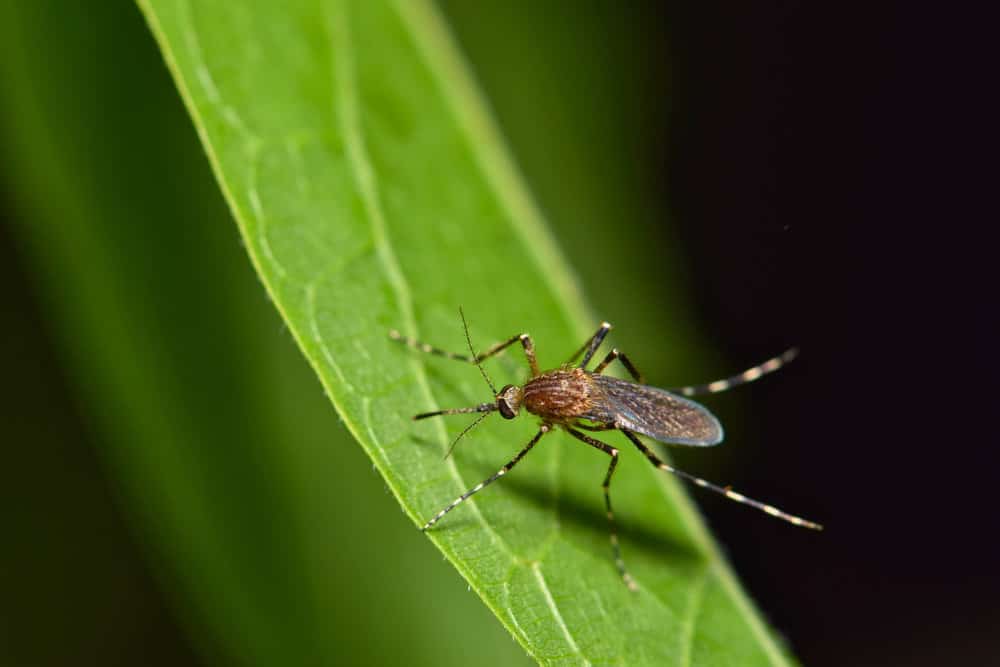
Much like North Carolina after Hurricane Florence in September, many victims and relief crews where Hurricane Michael hit in October are dealing with the same public health problem – mosquitoes.
Although flooding along the Florida panhandle didn’t last long, areas of standing water are out there and have become breeding grounds for an unusually large species of mosquito, Psorophora ciliata, better known as the gallinipper. They can be more than an inch long, two to three times larger than many other mosquitoes, and have distinctive zebra-striped legs. They’ve been described by entomologists as “noticeably bigger” than other species and they have voracious appetites.
Their eggs can lie dormant for years until the right kind of floodwaters come along, then they hatch in huge swarms. Gallinippers can strike day and night, and because they’re so big they can bite through some articles of clothing.
Michael H. Reiskind, an assistant professor in the Department of Entomology at North Carolina State University, told CNN after Hurricane Florence that these giant mosquitoes can carry canine heart worm but don’t transmit human diseases. That being said, their bites can be painful.
“Being bitten by a giant mosquito or being bitten hundreds of times by a giant mosquito can be, in and of itself, a public health issue,” Reiskind said. “Some people also have more severe reactions to bites. It can be truly disturbing. I have an 8-year-old son who reacts really badly to mosquito bites.”
Reiskind explained that pain levels and degrees of reactions vary among people based on immune system responses and previous experiences with a mosquito species. He also warns that, after hurricanes, there’s often a second wave of other hungry mosquitoes that comes after the giant ones.
“The kind we worry about more for the transmission of human disease, they often come out after that initial wave,” said Reiskind.
After Hurricane Florence, Governor Roy Cooper ordered $4 million to fund mosquito control efforts for more than 25 counties listed in major disaster declarations. In the hardest hit areas of Florida, mosquito control is underway. Bay County Emergency Services says spraying was done last weekend. Administrators at the Bay County Health Department tell FreightWaves that more spraying will be scheduled this week. The Calhoun County Emergency Management office has announced mosquito spraying for tonight, October 23. Gulf County Emergency Management tells FreightWaves that mosquito spraying has begun across the county..
Everyone in the region is being asked to help reduce the spread of mosquitoes by doing the following:
-
Scrub, turn over, cover, or throw out any items that hold water such as tires, buckets, planters, toys, pools, birdbaths, flower pot saucers, and trash containers.
-
Protect boats and vehicles from rain with tarps that don’t accumulate water.
-
Maintain swimming pools in good condition and appropriately chlorinated. Empty plastic swimming pools when not in use.
Protect yourself and your family while outdoors by wearing long pants and long sleeves, as thick as you can handle in the warm weather, and use plenty of insect repellent.
Boil water notices have been issued for all or parts of Bay, Calhoun, and Gulf Counties. Before using water, bring it to a rolling boil for at least one minute before using it for any purpose. People who have wells should should contact their local health departments to get a testing kit. Burn bans have also been ordered.
Emergency Management offices have also been receiving reports of chainsaw accidents as volunteers and crews clear trees and other debris. Bay, Calhoun, and Gulf Counties are offering free tetanus vaccinations at various locations.
Also, according to this report, around 45,000 customers still have no electricity in the Florida panhandle, including almost all of Calhoun County. A lot of progress has been made and crews continue to work hard to restore power to everyone.
